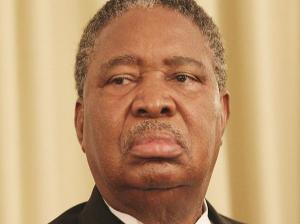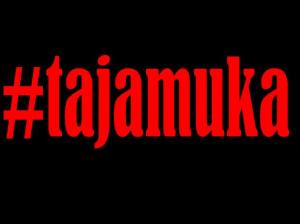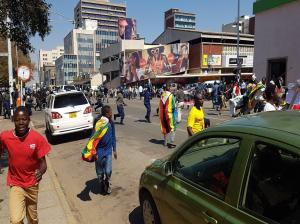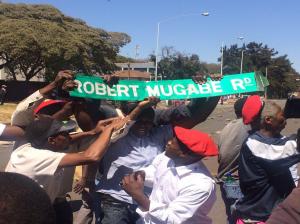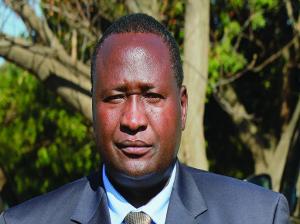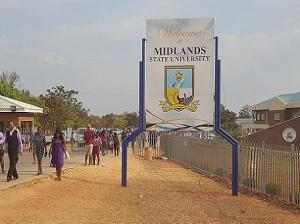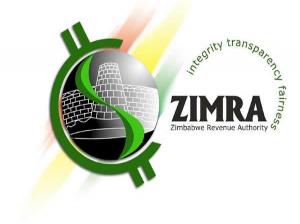SHOCKING: Zim Govt Robs Motorists to Save Broke AirZim
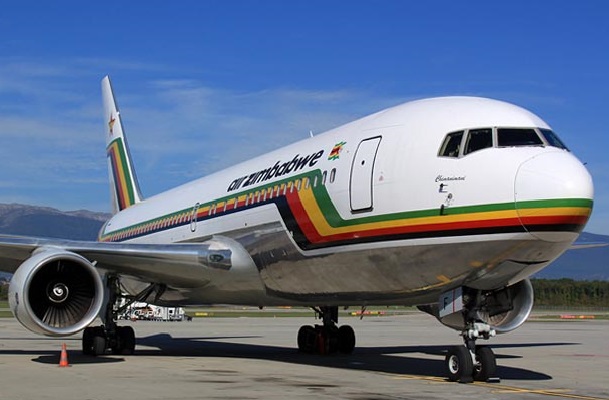
Published: 2016 July 15 13:35:17 (29077 Views)
Motorist in Zimbabwe are paying high figures, four times as much to get vehicle registration plates, contributing to a fund that has been used to keep broke state-owned Air Zimbabwe in the air.
It costs $160 to get a number plate in Zimbabwe, more than the range of $12 to $40 paid by motorists in South Africa, Namibia, Botswana, Zambia, Kenya and Uganda.
Zimbabwe registration plate fees go into a ‘New Vehicle Security Registration Number Plate Revolving Fund’ set up by government to collect cash from the sale of number plates.
The fund imports blank aluminum plates for on-selling to vehicle owners.
In 2014, the fund reported $17,5 million in vehicle number plate sales, up from $16,3 million the previous year.
Robbing road-user Peter to pay for flying Paul
According to the 2015 report by the Auditor General (AG), the number plate fund has paid over $30 million on behalf of Air Zimbabwe. Between 2012 and 2013, the fund made a cumulative $23 million payments on behalf of Air Zimbabwe, without Treasury approval.
“For the second year running, the Fund made payments to some of Air Zimbabwe’s service providers, without obtaining prior Treasury authority. The payments were treated as long term loans, although there were no interest charges raised. This was contrary to the Fund’s constitution,” the AG found.
“The accumulated payments amounted to $22,909,504 (2012: $19,875,976) as at December 31, 2013. I noted with concern that all the loan agreements were not signed by Air Zimbabwe and no repayments had been received to date.”
In 2014, the fund loaned Air Zimbabwe an additional $7,6 million, with $3,7 million of the total advance being made without Treasury approval, the AG said.
In response, the fund’s management sought to justify the advances saying the airline was facing viability problems.
“Air Zimbabwe has been facing viability challenges requiring urgent financial assistance from government. Negotiations with Treasury were successful and thereafter Treasury approval has been sought and granted,” the fund’s management said.
However, the AG noted that, at the time of the 2015 audit, no proof of the claimed Treasury authority had been provided.
A recent parliamentary committee report on Air Zimbabwe showed the airline is generating an average $2.65 million per month, against monthly expenses of $5.94 million. The company has a $298 million debt, which the government is poised to take over in a bid to clean up the airline’s balance sheet as it scouts for a technical partner to salvage the business.
Dodgy payments
In 2013, the fund also paid $555,572 which was not supported by invoices. Cash withdrawals amounting to $89,000 were made without the chief accountant’s approval and supporting payment vouchers. A further $292,462 in payments on behalf of the Transport Ministry’s head office were made without payment vouchers or invoices.
“Without adequate documentation, I could not satisfy myself whether the transactions were proper charges against the fund,” the AG stated.
To which the fund management responded tersely: “The observation is noted. Corrective measures will be taken.”
The AG further noted that the number plate fund’s 2014 accounts reflected payments amounting to $813,555 on behalf of the parent transport ministry for fuel procurement as well as travel and subsistence allowances.
“This was in contravention of the fund’s constitution which states that income should be applied towards financing costs of production and distribution of vehicle number plates,” the AG admonished.
The fund’s expansive expenditure on non-core payments to AirZim shows it is overcharging for the number plates, something government has admitted to.
In May, Transport Minister Joram Gumbo promised to reduce the number plate fees.
“My ministry is currently reviewing the cost of number plates with a view to making them more affordable. When we do that, we will still have to come back to Parliament and have everything gazetted in the interest of the public,” Gumbo told Parliament.
Serial contractor
The Central Vehicle Registry (CVR) partnered Southern Region Trading Company (SRTC) – a serial, often uncontested supplier to the Transport Ministry – in the supply of number plates introduced in March 2005.
In terms of the number plate deal, CVR, through the number plate fund, contributes 60 percent of the raw material purchase price, with SRTC weighing in with the balance and having full custody of the material.
The Workington-based company, which is registered as Univern and calls itself “a leading supplier to Zimbabwe’s Ministry of Transport and Communication,” has been embroiled in some controversy.
The firm won a 2012 tender to supply 40 motorised graders worth $8 million to the Zimbabwe National Roads Authority (Zinara). While the rural district councils who got the equipment protested that they were ‘snow graders’ not fit for purpose, Zinara went and procured a further 40 graders through Univern for another $8 million, this time without going to tender.
At the time, Zinara justified not going to tender, saying the second purchase “used the results of the first tender and Zinara merely had to rise on the first tender.”
Univern/SRTC was to strike an even more lucrative deal with Zinara, this time for vehicle licencing software valued at $54 million in 2013, also without going through tender.
According to the AG, the cost of the software was not stated upfront, but the agreement would see Zinara pay Univern 18.5 percent of total revenue collected through the system for 10 years.
By December 2013, Univern had been paid almost 40 percent of the software cost, getting $21 million as commission, with nine more years to go.
This year, Zinara has said it expects vehicle licence revenue to reach $200 million, from which Univern can expect to pocket $37 million, which adds up to more than $300 million for the duration of the contract.
Zinara management made an undertaking to the AG to negotiate with Univern for the reduction of the commission percentage, with a committee having been set to pursue this task.
Zinara did not respond to questions last month from The Source, asking whether the Univern commission had been reduced.
Univern also partners Zinara in the administration of about 20 toll gates, another contract the company got without going through tender.
In January, transport minister Gumbo voiced concern over Univern.
‘Government is gravely concerned at the intricate contractual relationship that now exists between Zinara and Univern,” Gumbo told Zinara management.
Who is Univern?
Univern Enterprises is a Zimbabwean-registered firm, which sometimes trades as Southern Region Trading Company (SRTC). A check with the companies registry in Harare showed that SRTC is not registered, but the company name was reserved by Univern’s owners.
The company’s directors are listed as Laurence Neil and Sherice Sher, who have been directors since inception in 1996, as well as Musekiwa Kumbula (since 2005). Company chief executive, Serge Levy, was appointed director in 2014.
The Shers appear to have dual Zimbabwean and South African citizenship, while Levy, the Zimbabwe National Chamber of Commerce (ZNCC) businessman of the year for 2015 is Zimbabwean. Newspaper reports have suggested Serge is related to late businessman Sam Levy. The Source could not independently verify this.
Kumbula, who has previously worked as a communications consultant for ZANU-PF and featured prominently during the 2000 elections, has strong ties to former ZANU-PF senior official Ray Kaukonde, a top ally of former Vice President Joice Mujuru.
Interest in the company’s ownership seems to extend beyond journalistic scrutiny. On March 30, 2015, a letter on a Central Intelligence Organisation official letterhead and signed by a ‘Senior Manager, Operations’ was delivered to the Registrar of Companies,
‘Please assist this office with details of the following for official investigations: Univern T/A SRTC.”
The reason for the inquiry was not immediately clear.
- The Source
It costs $160 to get a number plate in Zimbabwe, more than the range of $12 to $40 paid by motorists in South Africa, Namibia, Botswana, Zambia, Kenya and Uganda.
Zimbabwe registration plate fees go into a ‘New Vehicle Security Registration Number Plate Revolving Fund’ set up by government to collect cash from the sale of number plates.
The fund imports blank aluminum plates for on-selling to vehicle owners.
In 2014, the fund reported $17,5 million in vehicle number plate sales, up from $16,3 million the previous year.
Robbing road-user Peter to pay for flying Paul
According to the 2015 report by the Auditor General (AG), the number plate fund has paid over $30 million on behalf of Air Zimbabwe. Between 2012 and 2013, the fund made a cumulative $23 million payments on behalf of Air Zimbabwe, without Treasury approval.
“For the second year running, the Fund made payments to some of Air Zimbabwe’s service providers, without obtaining prior Treasury authority. The payments were treated as long term loans, although there were no interest charges raised. This was contrary to the Fund’s constitution,” the AG found.
“The accumulated payments amounted to $22,909,504 (2012: $19,875,976) as at December 31, 2013. I noted with concern that all the loan agreements were not signed by Air Zimbabwe and no repayments had been received to date.”
In 2014, the fund loaned Air Zimbabwe an additional $7,6 million, with $3,7 million of the total advance being made without Treasury approval, the AG said.
In response, the fund’s management sought to justify the advances saying the airline was facing viability problems.
“Air Zimbabwe has been facing viability challenges requiring urgent financial assistance from government. Negotiations with Treasury were successful and thereafter Treasury approval has been sought and granted,” the fund’s management said.
However, the AG noted that, at the time of the 2015 audit, no proof of the claimed Treasury authority had been provided.
A recent parliamentary committee report on Air Zimbabwe showed the airline is generating an average $2.65 million per month, against monthly expenses of $5.94 million. The company has a $298 million debt, which the government is poised to take over in a bid to clean up the airline’s balance sheet as it scouts for a technical partner to salvage the business.
Dodgy payments
In 2013, the fund also paid $555,572 which was not supported by invoices. Cash withdrawals amounting to $89,000 were made without the chief accountant’s approval and supporting payment vouchers. A further $292,462 in payments on behalf of the Transport Ministry’s head office were made without payment vouchers or invoices.
“Without adequate documentation, I could not satisfy myself whether the transactions were proper charges against the fund,” the AG stated.
To which the fund management responded tersely: “The observation is noted. Corrective measures will be taken.”
The AG further noted that the number plate fund’s 2014 accounts reflected payments amounting to $813,555 on behalf of the parent transport ministry for fuel procurement as well as travel and subsistence allowances.
“This was in contravention of the fund’s constitution which states that income should be applied towards financing costs of production and distribution of vehicle number plates,” the AG admonished.
The fund’s expansive expenditure on non-core payments to AirZim shows it is overcharging for the number plates, something government has admitted to.
In May, Transport Minister Joram Gumbo promised to reduce the number plate fees.
“My ministry is currently reviewing the cost of number plates with a view to making them more affordable. When we do that, we will still have to come back to Parliament and have everything gazetted in the interest of the public,” Gumbo told Parliament.
Serial contractor
The Central Vehicle Registry (CVR) partnered Southern Region Trading Company (SRTC) – a serial, often uncontested supplier to the Transport Ministry – in the supply of number plates introduced in March 2005.
In terms of the number plate deal, CVR, through the number plate fund, contributes 60 percent of the raw material purchase price, with SRTC weighing in with the balance and having full custody of the material.
The Workington-based company, which is registered as Univern and calls itself “a leading supplier to Zimbabwe’s Ministry of Transport and Communication,” has been embroiled in some controversy.
The firm won a 2012 tender to supply 40 motorised graders worth $8 million to the Zimbabwe National Roads Authority (Zinara). While the rural district councils who got the equipment protested that they were ‘snow graders’ not fit for purpose, Zinara went and procured a further 40 graders through Univern for another $8 million, this time without going to tender.
At the time, Zinara justified not going to tender, saying the second purchase “used the results of the first tender and Zinara merely had to rise on the first tender.”
Univern/SRTC was to strike an even more lucrative deal with Zinara, this time for vehicle licencing software valued at $54 million in 2013, also without going through tender.
According to the AG, the cost of the software was not stated upfront, but the agreement would see Zinara pay Univern 18.5 percent of total revenue collected through the system for 10 years.
By December 2013, Univern had been paid almost 40 percent of the software cost, getting $21 million as commission, with nine more years to go.
This year, Zinara has said it expects vehicle licence revenue to reach $200 million, from which Univern can expect to pocket $37 million, which adds up to more than $300 million for the duration of the contract.
Zinara management made an undertaking to the AG to negotiate with Univern for the reduction of the commission percentage, with a committee having been set to pursue this task.
Zinara did not respond to questions last month from The Source, asking whether the Univern commission had been reduced.
Univern also partners Zinara in the administration of about 20 toll gates, another contract the company got without going through tender.
In January, transport minister Gumbo voiced concern over Univern.
‘Government is gravely concerned at the intricate contractual relationship that now exists between Zinara and Univern,” Gumbo told Zinara management.
Who is Univern?
Univern Enterprises is a Zimbabwean-registered firm, which sometimes trades as Southern Region Trading Company (SRTC). A check with the companies registry in Harare showed that SRTC is not registered, but the company name was reserved by Univern’s owners.
The company’s directors are listed as Laurence Neil and Sherice Sher, who have been directors since inception in 1996, as well as Musekiwa Kumbula (since 2005). Company chief executive, Serge Levy, was appointed director in 2014.
The Shers appear to have dual Zimbabwean and South African citizenship, while Levy, the Zimbabwe National Chamber of Commerce (ZNCC) businessman of the year for 2015 is Zimbabwean. Newspaper reports have suggested Serge is related to late businessman Sam Levy. The Source could not independently verify this.
Kumbula, who has previously worked as a communications consultant for ZANU-PF and featured prominently during the 2000 elections, has strong ties to former ZANU-PF senior official Ray Kaukonde, a top ally of former Vice President Joice Mujuru.
Interest in the company’s ownership seems to extend beyond journalistic scrutiny. On March 30, 2015, a letter on a Central Intelligence Organisation official letterhead and signed by a ‘Senior Manager, Operations’ was delivered to the Registrar of Companies,
‘Please assist this office with details of the following for official investigations: Univern T/A SRTC.”
The reason for the inquiry was not immediately clear.
- The Source
You May Like These Videos
Comments
There are no comments.
Get Zim Metro Updates Alerts
Big Reads

Schoolgirl drops out after continuous 'sexual abuse' by teacher
by Staff Reporter | 2019 August 13 07:42:33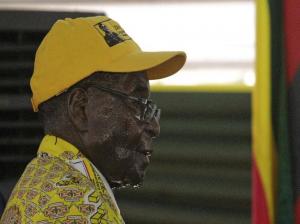
Mugabe Knows Nothing About The Zimbabwe Constitution: MP
by Staff Reporter | 2016 October 01 08:12:02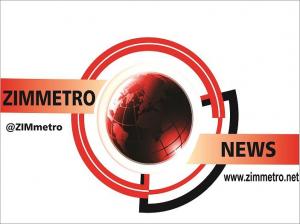
Zim's Protesting Graduates Risk Losing Degrees For Expressing Anger Against Mugabe
by Staff Reporter | 2016 October 01 07:57:08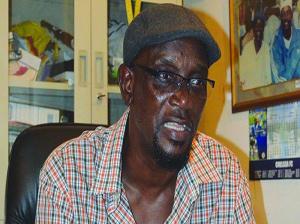
Troubled Harare Giants Dynamos Falls Into Another Deep Crisis
by Own Correspondent | 2016 October 01 07:49:17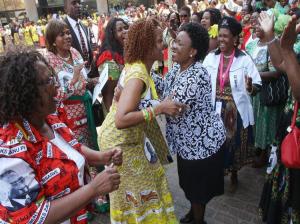
Grace Mugabe Grovels At Mnangagwa, Says I Did Not Ask Ubaba To Fire You
by Staff Reporter | 2016 October 01 07:31:48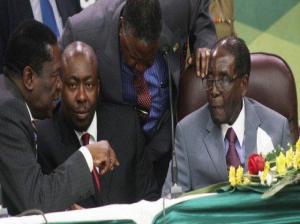
Mugabe Attacks Mawarire, Claims The Exiled Pastor Failed To Divide Zimbabwe
by Staff Reporter | 2016 October 01 07:19:13
Shock As Local Bank Denies 'Rich' Mugabe's Son Heifty Credit
by Own Correspondent | 2016 September 30 19:14:54
Trouble For Police Officers Who Have Been Mercilessly Bludgeoning Protesters
by Staff Reporter | 2016 October 01 07:20:19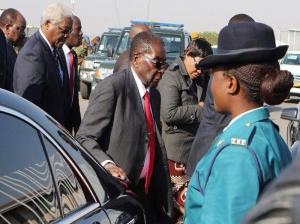
Mugabe "Home Coming" And "Thank You" Rally On Cards
by Own Correspondent | 2016 September 23 06:48:24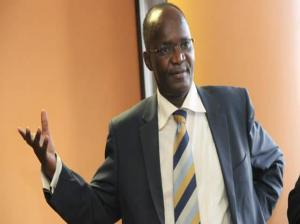
Prof Moyo Was Dumped By Western Embassies, Claims Mutsvangwa
by Staff Reporter | 2016 September 22 10:08:07
Broke RBZ Tracks Down Zimbabweans Living Outside The Country Over Taxi
by Staff Reporter | 2016 September 22 09:16:20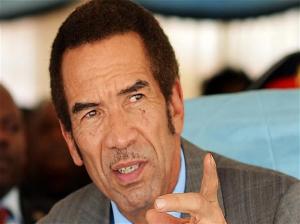
You Are Too Old To Lead, Aging Zim President Mugabe Told
by Own Correspondent | 2016 September 22 07:19:25
Anti-Corruption Commission Loses Property In Failed Probe
by Own Correspondent | 2016 September 20 03:18:19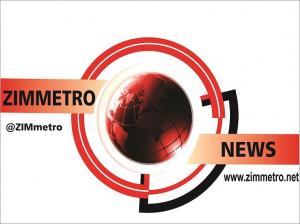
SHOCKING:14 Year Old HIV-Positive Boy Rapes 7 Pupils
by Own Correspondent | 2016 September 20 00:04:55

 WATCH: Victims Narrate Ordeal After Being Clobbered By Riot Cops
WATCH: Victims Narrate Ordeal After Being Clobbered By Riot Cops FLASHBACK: Morgan Tsvangirai Won't Resign Despite Illness
FLASHBACK: Morgan Tsvangirai Won't Resign Despite Illness  Police Violently Beat Harare Protesters
Police Violently Beat Harare Protesters  Zimbabwean Man Who Was Shot By Tswana Employer Appeals For Help
Zimbabwean Man Who Was Shot By Tswana Employer Appeals For Help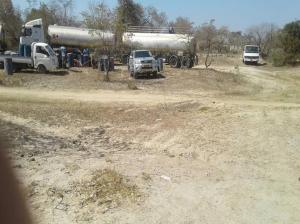

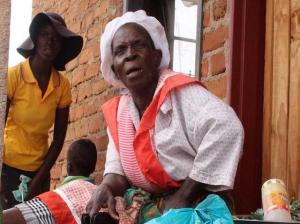




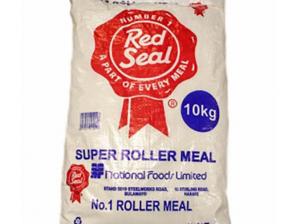
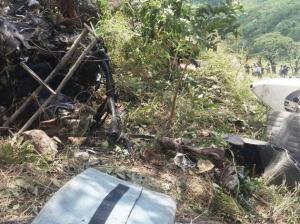
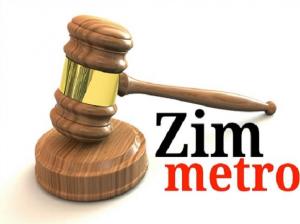
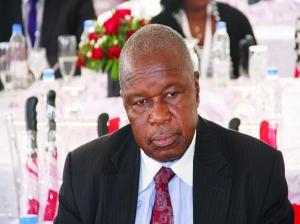

.jpg)
